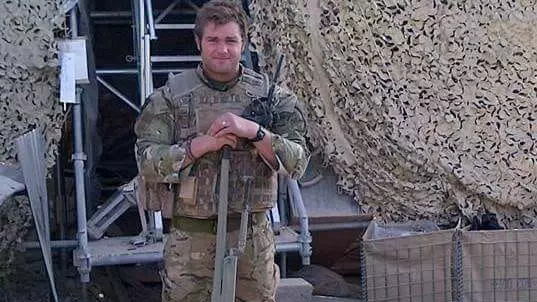
Being a sniper is much more than being able to shoot a gun accurately.
Once a sniper has passed their training, they become an endurance athlete, a spy and experts in ballistics and the weather.
That's if they pass the training in the first place.
British recruits are put through 10 gruelling weeks involving as much maths as marksmanship, alongside several weeks up to their elbows in mud. Most never get their sniper's badge - it's certainly a lot easier to fail than it is to pass.
Advert
Kenny Watson came from a long family tradition of military service and was pretty damn pleased with himself when he was handed his sniper's badge and finished as the top student.
"I hated the everyday soldiering in an infantry regiment. I looked at the snipers as the top guys, the cream of the battalion and the regiment. I wanted to achieve something like that one day," he tells LADbible.
"The proudest day of my career was when the commanding officer handed my sniper's badge.
"These guys [snipers] are a different breed of people - I wanted to be part of that and have that next to my name."
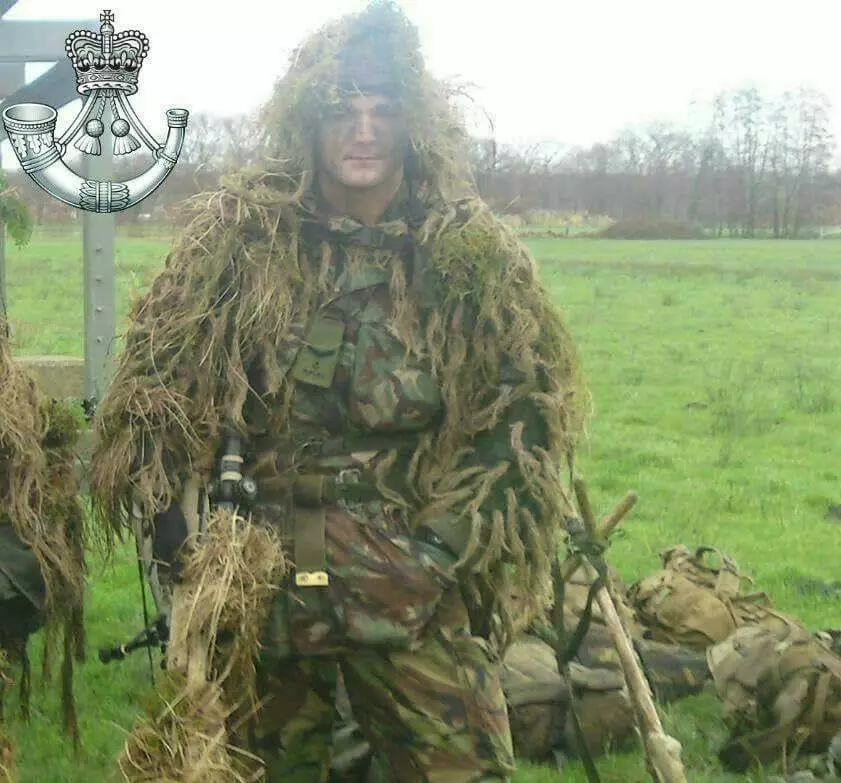
Advert
By the time he received his sniper qualification Kenny had already been deployed twice to the Middle East, once in Afghanistan and once in Iraq.
He says those tours helped him survive his tough training, which he describes as: "The real soldiering. Living out on the ground and learning how to be a sniper. Learning how to hunt another human being without being caught."
However, he quickly learned that being a sniper in the heat of battle was something you couldn't be trained in.
"Nothing preps you for the first time you release a round in anger," he tells us. "I was quite fortunate in that I'd been on tour twice before I qualified, however, it's different.
Advert
"I'd released rounds in anger before, but it's different as a sniper. If you're a sniper, you're releasing rounds solely because you've got someone you want to hit. Regardless of what was going on around me, I was able to control my breathing. If you don't control your breathing and you fire a round, you're going to miss.
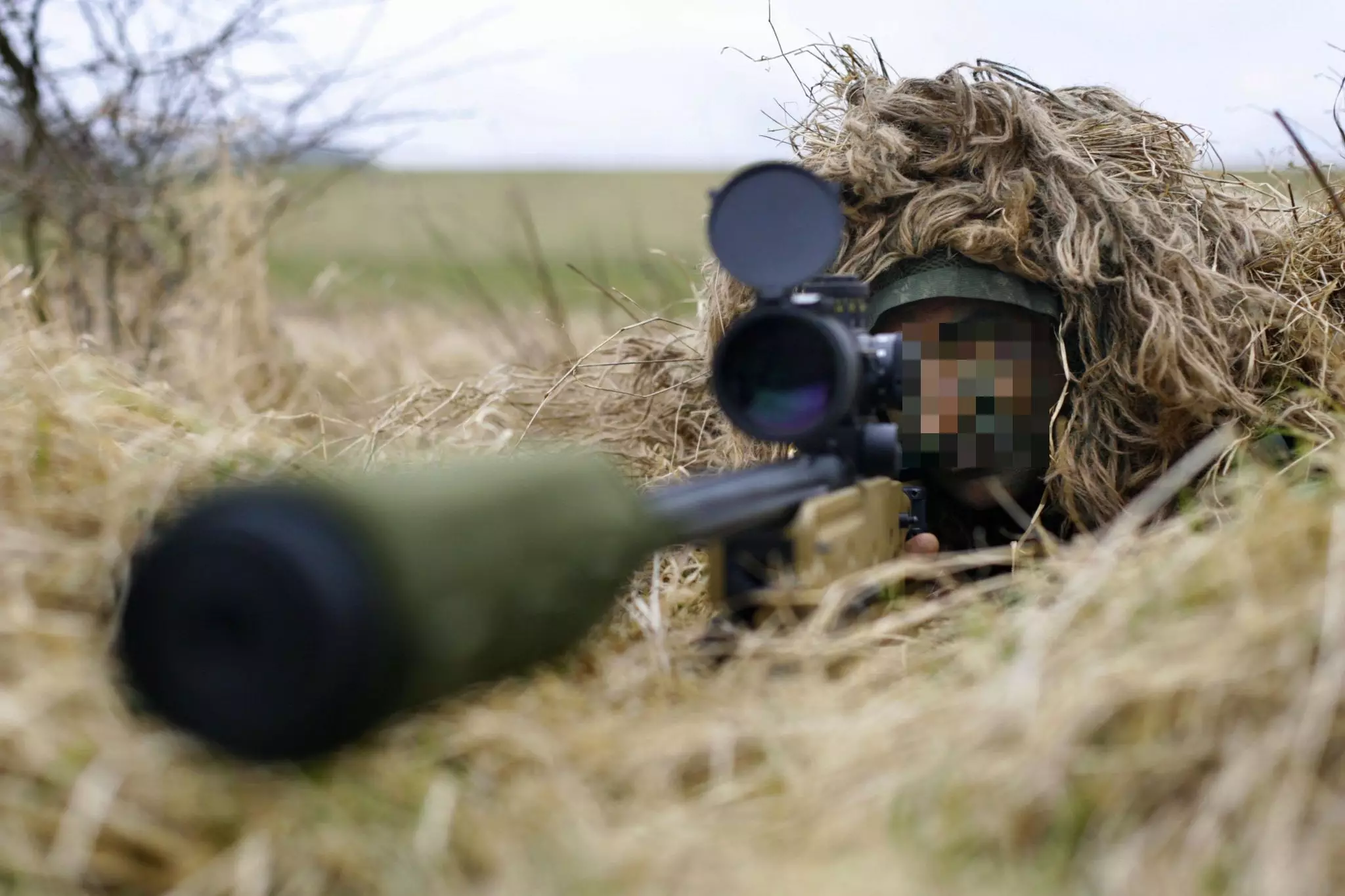
"The weapon is that precise that you'll miss. It's not a forgiving bit of kit."
There are plenty of videos on the internet of snipers being able to hit targets thousands of metres away, but Kenny says while they're well trained in distant shots, it's incredibly difficult to do in the Middle East.
Advert
"Trying to hit anything above 600 metres in Afghanistan is nigh on impossible because of the mirage," he says. "No matter what time of day it is, if you zoom in, it looks like the ground is waving at you.
"You could have a mirage at 600m and the target looks like it's there, but it's 200m away"
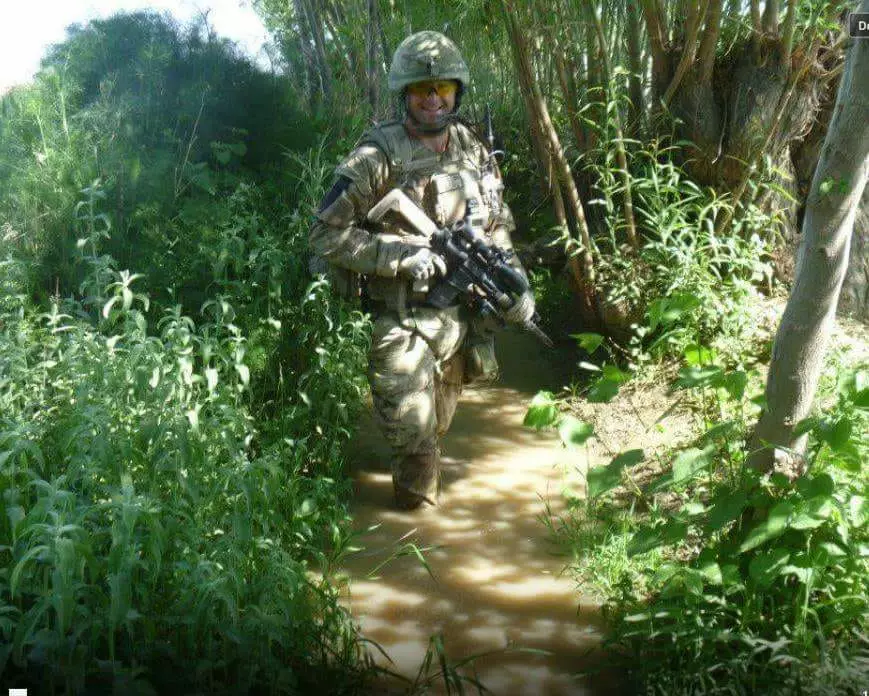
Being able to hit a bullseye is one thing, but pulling the trigger and knowing it's going to end someone's life is a completely different thing. For a sniper to be truly successful, they have to be able to separate themselves from the human cost of their job.
Advert
Kenny adds: "I never really registered it. I always looked at how I could improve the shot. All I felt was the kick in the shoulder of the weapon when I took the shot.
"It was more about informing the people around me that there was one target down. That's all they were to me at the time.
"I felt like it was a justice in a sense, because I didn't know what that individual had done to so many other families and individuals since they came into operation themselves.
"Me getting to stop that was a great justice.
"However, at the time it was more 'how many can I get? how many can I see?' It was like 'one down, where's the next'?"
He added: "It's not like you're being big-headed. You're there to do a precise job and you're going to do it. You want to prove that you're an asset to the regiment. That's what you train for as a sniper.
"You've got all of this going through your head at the same time as being a human being.
"You learn to take the human element away because you have to. There's so much going on at one time before you can even release a round that you can't afford to have a human aspect on things."
The human aspect doesn't disappear entirely though.
After his tour ended in 2012, Kenny suffered from horrific post traumatic stress disorder and was also grappling with a serious injury from an improvised explosive device.
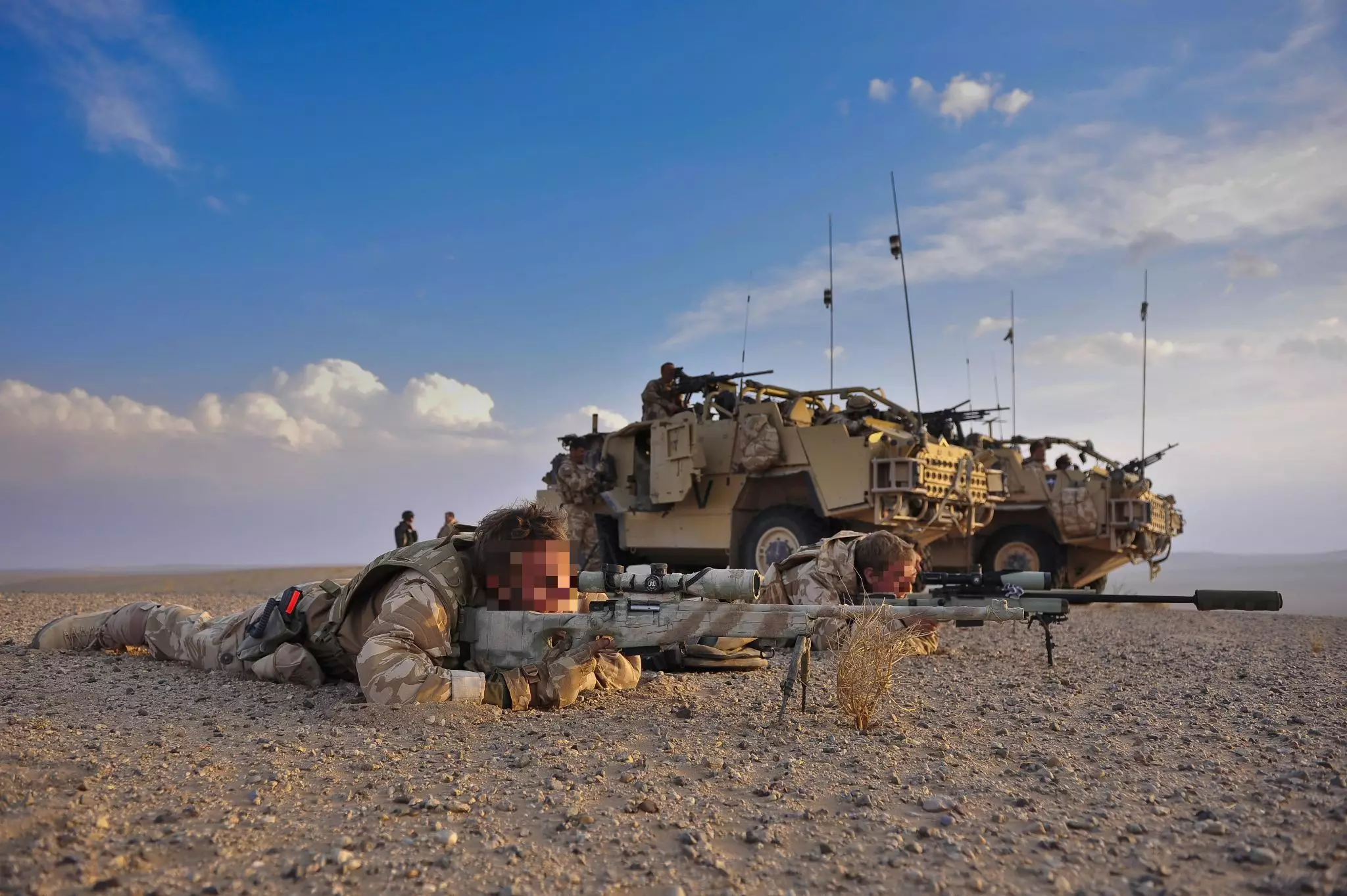
He tells LADbible: "That's why I lost my career in the end, because of my mental health. I just couldn't deal with it anymore.The more and more I pushed the human aspect away, the more it tried to boot the door in.
"As much pain as I was in, I just thought I was fine - I didn't want to be viewed as weak."
The psychological pain led him to question everything that he had done in his career, and the reasoning behind it.
He said: "There were constant thoughts of 'who were these people that I was after? What had they done? What chaos had they caused? Why did they have to be there when I was there?
"I was a child at one point - I have a five year old son - to think that when I was five there was another five year old in Afghanistan with a target on the back of his head and I'm going to end up taking that guy's life from half a kilometre away.
"My brain went into meltdown."
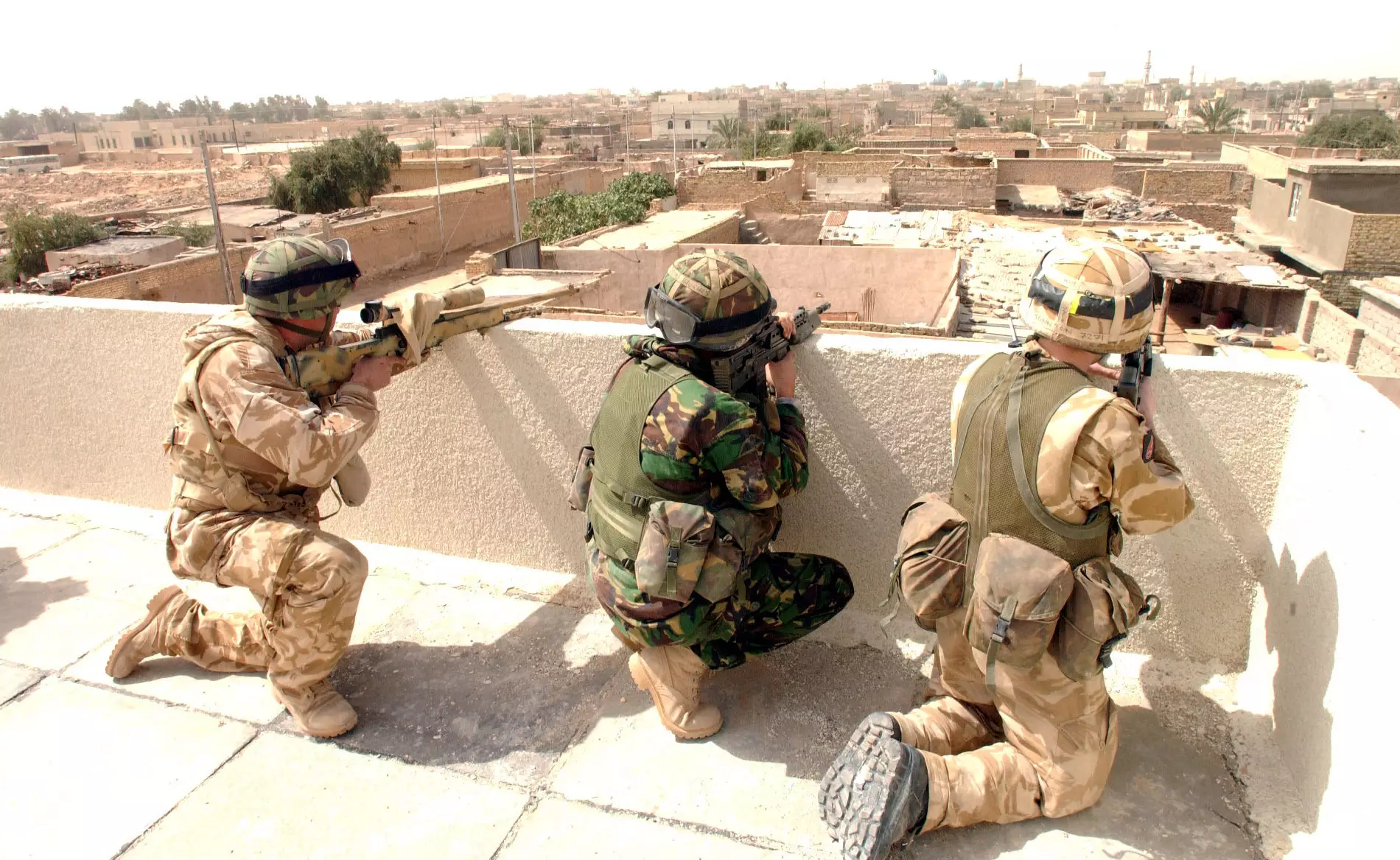
He underwent significant treatment for his mental health and was eventually medically discharged in 2017 after years of treatment. His problems became so bad that he tried to take his own life and was self harming because he felt his inner demons were too much to handle.
Kenny says it was pretty difficult to hit rock bottom: "Life went from training for Special Forces to not being allowed to look after my son, having no career and having meds thrown down my throat"
Luckily, the only place to go from there was up. His wife, a psychology student, suggested that he go along to a seminar about PTSD and mental health for returning servicemen.
He was sceptical at first, but a year after his first meeting, he was delivering the seminars and giving open talks about his experiences.
Kenny has also dedicated his time to building his own racing car; hoping this his part-time hobby can be a force for good.

He will race in April in the Super Lap Scotland Time Attack and has been fundraising for charities that help returned servicemen and women.
The car hasn't turned a wheel yet, but he is hoping that it will do more than that.
He said: "If I can do something to create awareness and make people in this position think differently I'm more than happy to do that.I'm doing everything I can to tell my story to help other people come forward."
Featured Image Credit: Kenny WatsonTopics: army, Mental Health, Interesting, Community, british army, UK, Sniper